
Specific language and learning disorders, commonly known as « Dis » disorders (dyslexia, dyspraxia, dysphasia, etc.), are a consequence of specific cognitive disorders of neurodevelopment.
Recognized in 2017 by Law 27306 ( inclusion) on equal rights and opportunities, participation and citizenship of persons with disabilities.
The manifestations of these disorders appear during the child’s development.
Most often, they are revealed in the school context, and persist into adulthood with often serious repercussions at the academic, professional and social level….
It’s therefore necessary to act in time.
What legislation exists in our country to protect the rights of persons with DYS disabilities?
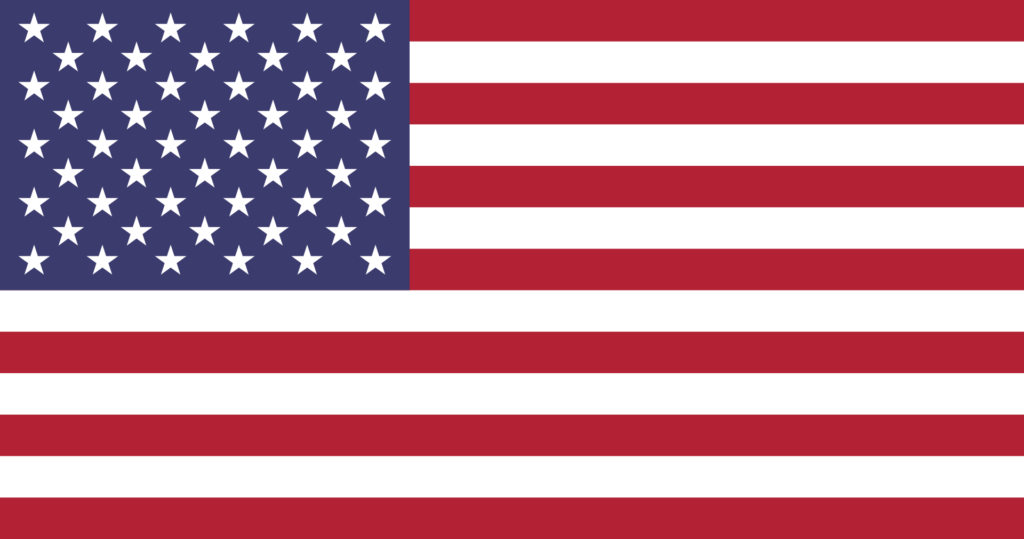
CPIR has compiled lists of organizations that offer information, support, and services related to disability in every state and territory in the United States. The search feature can be used to generate a State List of agency resources for your state:https://www.parentcenterhub.org/find-your-center/
Key Learning Disability Statistics:
At least1 in every 59 childrenhas one or several learning disabilities.
1 in 5 childrenin the U.S. have learning and thinking differences such as ADHD or Dyslexia.
As of 2021, 2.8 million kidsare actively getting services involving special education.
4 million children younger than 18 have learning disabilities in the United States.
Children with learning disabilities account for 47% of the total amount of them receiving special education.
Kids with learning conditions have a 31% greater chance of being bulliedthan kids with no disabilities.
Boys account for about 66% of children with a learning disability diagnosis.
Over 18% of learning-disabled kidsdrop out of school.
The three most common learning disabilities found in American children are ADHD, dyslexia, and dysgraphia.
In the United States, there are several laws and acts that provide protection and support for children with disabilities, including the following:
Individuals with Disabilities Education Act (IDEA): This federal law ensures that children with disabilities receive a free appropriate public education (FAPE) in the least restrictive environment. It mandates the provision of special education and related services to eligible children from birth through age 21.
Section 504 of the Rehabilitation Act of 1973: This law prohibits discrimination against individuals with disabilities in programs and activities receiving federal financial assistance. It requires schools to provide equal access to education and related services for students with disabilities.
Americans with Disabilities Act (ADA): The ADA prohibits discrimination against individuals with disabilities in various areas, including employment, public accommodations, transportation, and telecommunications. It ensures equal opportunities and accessibility for individuals with disabilities.
Assistive Technology Act (ATA): This act supports the use of assistive technology devices and services for individuals with disabilities, including children. It promotes access to technology that enhances their functional capabilities and independence.
Social Security Act: This legislation includes various programs such as Supplemental Security Income (SSI) and Social Security Disability Insurance (SSDI), which provide financial assistance to individuals, including children, with disabilities and their families.
Please keep in mind that while I strive to provide accurate and up-to-date information, it’s always a good idea to consult official government sources or legal professionals for the most current and detailed information regarding legislation.
Do scholarships exist?
Yes, there are scholarships available specifically for students with disabilities (including dyslexia, dysgraphia, and other learning disabilities). These scholarships aim to support students in pursuing their education and achieving their academic goals. It’s important to note that the availability and eligibility criteria for scholarships can vary, so it’s recommended to research specific scholarship programs and their requirements. Here are a few examples of scholarships for students with disabilities:
Anne Ford Scholarship: This scholarship is offered by the National Center for Learning Disabilities (NCLD) and provides financial assistance to graduating high school seniors with documented learning disabilities who are pursuing post-secondary education.
Allegra Ford Thomas Scholarship: Also provided by the NCLD, this scholarship is specifically for high school seniors with learning disabilities who are planning to attend a two-year community college, a vocational or technical training program, or a specialized program for students with learning disabilities.
The Ability Center Scholarship Program: The Ability Center offers scholarships to students with disabilities in northwest Ohio. These scholarships are awarded to individuals pursuing higher education at a college or university.
Google Lime Scholarship Program: This scholarship is designed for students with disabilities pursuing a degree in computer science, computer engineering, or a related field. It is offered by Google in partnership with Lime Connect.
Foundation for Science and Disability (FSD) Scholarship Program: FSD offers scholarships to undergraduate and graduate students with disabilities who are studying in the fields of science, engineering, mathematics, technology, and pre-medical/dental areas.
These are just a few examples, and there are many more scholarships available. It’s recommended to explore scholarship databases, disability advocacy organizations, and educational institutions to find more opportunities. Additionally, check with your school’s financial aid office or guidance counselor for information on scholarships specifically available to students with disabilities.

There are approximately 351,000 children aged 0-17 with a learning disability in the UK.
Most children with special educational needs (SEN) go to mainstream schools, with less than 10% attending special schools in the UK:
Most children with special educational needs (SEN) go to mainstream schools, with less than 10% attending special schools in the UK:
In England in 2019/20,9.3%of pupils with SEN attended special schools (Gov.uk, 2020).
In Northern Ireland in 2021/21, that figure was9.8%(DENI, 2021).
In Wales in 2019/20, that figure was5.3%(StatsWales 2020).
In Scotland in 2020, 6.8%of pupils with additional support needs attended special schools (Scottish Government, 2021).
Since 1995, Great Britain has had a specific law aimed at fighting discrimination against disabled people. It was revised in 2005 by the Disability Discrimination Act. Comparing first the British and French definitions of disability (law 2005-102 on equal rights and opportunities, participation and citizenship of disabled people), and then the policies implemented in these two European Union countries, allows us to measure the impact of the inclusion policy for disabled people advocated within the framework of the Union. It is clear that France, despite a renewed legislative arsenal, is struggling to align itself with the English model in this area.
http://www.opsi.gov.uk/acts/acts2005/20050013.htm
The Education Act (1981) was largely based on the Warnock Report (1978)
The UK Education Act 1981 begins with a definition of a child with special educational needs. It is a child who has learning difficulties that require special educational provision.
A child has a learning disability if:
– He or she has a greater learning disability than the majority of children his or her age
– He or she has a disability that prevents him or her from using the educational facilities used in schools in the area for a child his or her age
– He/she is under 5 years of age and would fall into one of the above two categories
« Preliminary
1Meaning of » special educational needs » and » special educational provision «
(1)For the purposes of this Act a child has « special educational needs » if he has a learning difficulty which calls for special educational provision to be made for him.
(2)Subject to subsection (4) below, a child has a » learning difficulty » if–
(a)he has a significantly greater difficulty in learning than the majority of children of his age; or
(b)he has a disability which either prevents or hinders him from making use of educational facilities of a kind generally provided in schools, within the area of the local authority concerned, for children of his age; or
(c)he is under the age of five years and is, or would be if special educational provision were not made for him. likely to fall within paragraph (a) or (b) when over that age.. »
The ‘Mental Capacity Act’ is an important law for people with a learning disability. It helps make sure that people who may lack capacity to make decisions on their own get the support they need to make those decisions.
From October 1st 2010, disability discrimination issues became covered by the Equality Act. This replaced the Disability Act 1995. The Equality Act 2010 legally protects people from discrimination in the workplace and in wider society.
An employer has a legal duty under The Equality Act 2010 to make appropriate reasonable adjustments to reduce the impact that a disability has on a person’s ability to perform effectively in their role.
The Equality Act 2010
defines a disability as:
« a physical or mental impairment which has a substantial and long-term adverse effect on their ability to carry out normal day-to-day activities ».
Substantial is defined as ‘more than trivial’.
Therefore, as dyslexia is a lifelong condition and has a significant impact on a person’s day-to-day life, it meets the criteria of a disability and is covered by The Equality Act 2010.
An employer must not refuse to employ someone simply because they have a disability. They also have a legal duty to make reasonable adjustments to the workplace. This duty begins with the recruitment process, so recruitment and selection processes must be dyslexia-friendly to be lawful.
Read more about theEquality Act 2010
You can have Scholarships and financial support!
In the United Kingdom, there are also scholarships and financial support options available for students with disabilities. Here are a few examples:
Disabled Students’ Allowances (DSA): DSA is a government-funded program that provides financial assistance to higher education students with disabilities in the UK. It can cover additional costs related to a disability or long-term health condition, such as specialized equipment, non-medical helpers, travel expenses, and other support services.
Snowdon Trust: The Snowdon Trust offers grants and scholarships to support students with disabilities in accessing further or higher education in the UK. Their funding can be used for a range of purposes, including assistive technology, study-related costs, and living expenses.
The Douglas Bader Foundation: This foundation provides scholarships for disabled individuals pursuing higher education or vocational training in the UK. They aim to support students with physical disabilities and promote achievement in education and employment.
The Bendrigg Trust: The Bendrigg Trust offers funding opportunities for young people with disabilities to participate in outdoor activities, courses, and educational programs. They aim to promote personal development, skills enhancement, and social inclusion.
The Disability Rights UK Student Support Fund: Disability Rights UK provides a Student Support Fund to assist disabled students in higher education who are facing financial hardship. The fund can provide grants to cover study-related costs and other essential expenses.
These are just a few examples of the scholarships and financial support available for disabled students in the UK. It’s advisable to conduct further research, visit the websites of disability-focused organizations, and consult with educational institutions to explore additional scholarship opportunities and financial assistance programs.
Remember to review the eligibility criteria and application requirements for each scholarship or funding option, as they may vary. It’s also recommended to contact the relevant organizations directly for the most up-to-date information.

The laws and rights pertaining to individuals with disabilities, including those with dyslexia and other learning disabilities, can vary across countries in Latin America. While I can provide some general information, it’s important to note that the specifics may vary by country. Here are a few key aspects to consider:
United Nations Convention on the Rights of Persons with Disabilities (CRPD): The CRPD is an international human rights treaty that sets out the rights of individuals with disabilities. Many Latin American countries have ratified this convention, which establishes a framework for ensuring equal rights, non-discrimination, and inclusion of persons with disabilities.
Education Rights: Most countries in Latin America have laws and policies to ensure inclusive education for individuals with disabilities. These may include provisions for reasonable accommodations, support services, and specialized education plans. However, the implementation and effectiveness of these laws can vary.
Accessibility: Various countries have laws or regulations in place to promote accessibility for individuals with disabilities. These can cover areas such as public transportation, buildings, information and communication technologies, and public services. The specific requirements and level of enforcement may differ by country.
Employment and Social Security: Some countries in Latin America have legislation in place to protect the rights of individuals with disabilities in the workplace. These laws may address issues such as equal opportunities, reasonable accommodations, and non-discrimination. Additionally, social security systems may provide benefits or support programs for individuals with disabilities.
Disability Rights Organizations: There are numerous non-governmental organizations and advocacy groups throughout Latin America that work to promote the rights and inclusion of individuals with disabilities. These organizations often provide resources, support services, and legal guidance to individuals with disabilities and their families.
It’s essential to consult the specific laws and regulations of the country you are interested in or consult with local disability rights organizations for accurate and detailed information regarding the rights of individuals with disabilities, including those with dyslexia or other learning disabilities, in a particular Latin American country.
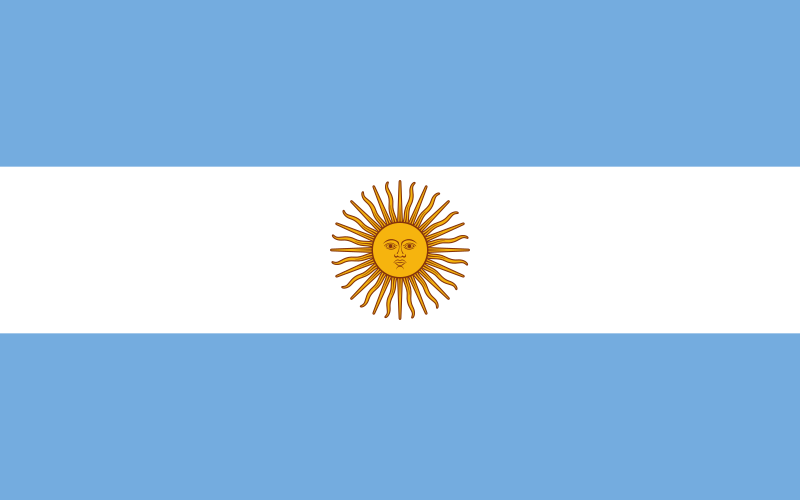
The legislation and legal framework for children with dyslexia and other learning disabilities include the following:
National Law on Education (Ley de Educación Nacional, Law No. 26.206) – This law establishes the general framework for education in Argentina. It emphasizes inclusive education and the right to education for all, including students with disabilities. It promotes individualized support, reasonable accommodations, and the development of inclusive educational practices.
National Law on Comprehensive Protection for Persons with Disabilities (Ley de Protección Integral de las Personas con Discapacidad, Law No. 24.901) – This law focuses on the comprehensive protection of persons with disabilities, including children with dyslexia. It recognizes their rights to education, health, social inclusion, and accessibility. It encourages inclusive education, reasonable accommodations, and support services for students with disabilities.
National Law on the Rights of Children and Adolescents (Ley de Derechos de Niñas, Niños y Adolescentes, Law No. 26.061) – This law safeguards the rights of children and adolescents in Argentina. It emphasizes their right to education, including students with disabilities. It promotes non-discrimination, equal opportunities, and the provision of appropriate educational services for students with dyslexia and other disabilities.
Provincial and Municipal Education Laws and Regulations – Each province and municipality in Argentina may have its own education laws and regulations that complement the national legislation. These laws provide specific guidelines and provisions for the education of students with disabilities, including dyslexia, within their respective regions.
About scholarship?
Has various scholarship programs available for students, including those with disabilities. Here are a few examples of scholarship opportunities in Argentina:
Progresar: Progresar is a national scholarship program in Argentina that provides financial assistance to students from low-income families. It supports students pursuing technical, undergraduate, and postgraduate studies, including those with disabilities.
Beca Bicentenario: Beca Bicentenario is a scholarship program that aims to promote equal opportunities in higher education. It provides financial assistance to students from economically disadvantaged backgrounds, including students with disabilities.
National University Scholarships: Many national universities in Argentina offer their own scholarship programs for students. These scholarships may be merit-based or need-based and can support students with disabilities in pursuing their education.
National Institute Against Discrimination, Xenophobia, and Racism (INADI): INADI offers scholarships to individuals from vulnerable groups, including people with disabilities. These scholarships aim to promote inclusion and equal access to education.
Provincial Scholarships: Several provinces in Argentina have their own scholarship programs to support students with disabilities. These scholarships may be specific to the province and can vary in terms of eligibility criteria and benefits.
It’s important to note that scholarship programs may have specific eligibility criteria, application processes, and deadlines. It is advisable to research the specific scholarship programs you are interested in and consult with the relevant authorities, such as educational institutions or scholarship providers, to obtain accurate and up-to-date information.
Additionally, it can be helpful to explore disability advocacy organizations and support networks within Argentina, as they may have further information and resources regarding scholarships and financial aid for individuals with disabilities.

The legislation and legal framework for children with dyslexia and other learning disabilities include the following:
Law on Inclusion of Students with Disabilities in Regular Education (Ley de Inclusión Escolar, Law No. 20.845) – This law focuses on promoting the inclusion of students with disabilities, including dyslexia, in regular education. It establishes the principles of non-discrimination, equal opportunities, and reasonable accommodations. It also provides guidelines for the creation of Individualized Education Plans (Plan de Apoyo Individual) and the provision of support services for students with disabilities.
National Guidelines for the Education of Students with Special Educational Needs (Orientaciones Técnicas para la Educación de Estudiantes con Necesidades Educativas Especiales) – These guidelines provide the framework for the education of students with special educational needs, including dyslexia, in Chile. They offer recommendations for identification, assessment, support services, and inclusive educational practices.
Law on the Rights and Duties of Students (Ley de los Derechos y Deberes de los Estudiantes, Law No. 19.688) – This law establishes the rights and duties of students in Chilean schools. It emphasizes the right to non-discrimination, access to education, and reasonable accommodations for students with disabilities, including dyslexia.
Special Education Decree (Decreto Exento N° 170/2009) – This decree provides regulations and procedures for the provision of special education services in Chile. It outlines the assessment process, the development of Individualized Education Plans (Plan de Educación Individual), and the delivery of support services for students with disabilities, including dyslexia.
Ministry of Education Resolutions and Circulars – The Ministry of Education in Chile issues resolutions and circulars to provide specific guidelines and instructions related to special education and the inclusion of students with disabilities. These documents address issues such as assessment procedures, support services, and the implementation of inclusive educational practices.
In Chile, there are scholarship programs and financial support options available for students with disabilities, including those with dyslexia and other learning disabilities. Here are a few examples of scholarship opportunities:
National Disability Service (SENADIS) Scholarships: SENADIS offers various scholarship programs to support students with disabilities in Chile. These scholarships aim to promote educational inclusion and provide financial assistance for students with disabilities at different educational levels.
Ministry of Education Scholarships: The Ministry of Education in Chile provides scholarships and grants for students with disabilities. These scholarships can support students at different educational levels, including primary, secondary, and tertiary education.
Universidad para Todos (University for All) Scholarships: This scholarship program aims to promote equal access to higher education for vulnerable groups, including students with disabilities. It provides financial support for eligible students to pursue their studies at universities or technical institutes in Chile.
JUNAEB Scholarships: The National Board of Student Aid and Scholarships (JUNAEB) in Chile offers scholarships and support programs for students, including those with disabilities. These scholarships cover a wide range of educational expenses and aim to support students from low-income backgrounds.
Regional Scholarships: Some regional governments in Chile may have their own scholarship programs to support students with disabilities. These programs may provide financial assistance for education-related expenses.
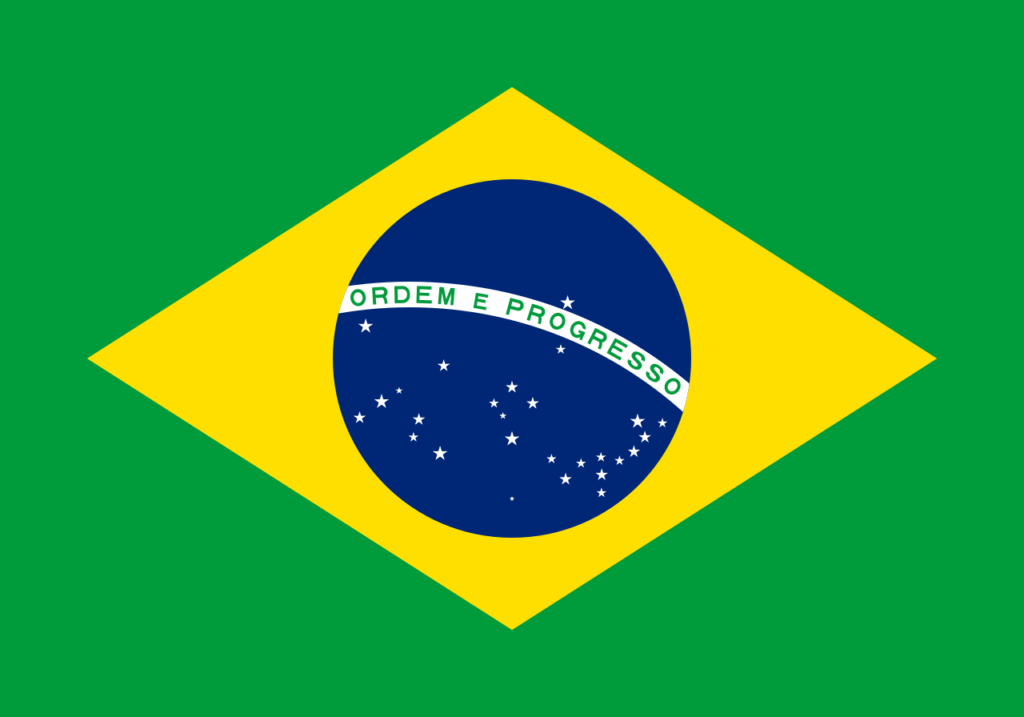
The legislation and legal framework for children with dyslexia and other learning disabilities include the following:
Law on Inclusion of Persons with Disabilities (Lei Brasileira de Inclusão da Pessoa com Deficiência, Law No. 13.146/2015) – This law guarantees the rights of persons with disabilities, including children with dyslexia, in various aspects of life, including education. It promotes inclusive education, reasonable accommodations, and the right to equal opportunities in education.
National Guidelines for Special Education in Basic Education (Política Nacional de Educação Especial na Perspectiva da Educação Inclusiva) – These guidelines provide the framework for the inclusion of students with disabilities, including dyslexia, in mainstream schools. It emphasizes the need for specialized support services, individualized educational plans, and collaboration among teachers and professionals to meet the diverse needs of students with disabilities.
Law on Inclusion in Higher Education (Lei de Inclusão nas Instituições de Educação Superior, Law No. 13.409/2016) – This law focuses on ensuring access and inclusion of students with disabilities, including dyslexia, in higher education institutions. It establishes guidelines for reasonable accommodations, support services, and accessibility measures in universities and colleges.
National Curriculum Guidelines for Special Education (Diretrizes Curriculares Nacionais para a Educação Especial) – These guidelines provide directions for the organization and development of special education programs, including those for students with dyslexia. They outline the principles, goals, and methodologies to be adopted to meet the educational needs of students with disabilities.
Decrees and Regulations – There are additional decrees and regulations at the federal, state, and municipal levels that complement the national legislation and provide specific guidelines for the education of students with disabilities. These decrees and regulations address issues such as assessment procedures, support services, and the creation of individualized educational plans.
About scholarship?
There are various scholarship opportunities and support programs available for students with dyslexia and other learning disabilities. Here are a few examples:
Instituto ABCD Scholarship Program: Instituto ABCD is an organization focused on supporting individuals with dyslexia. They offer a scholarship program for students with dyslexia, providing financial assistance to cover educational expenses.
Bolsas Iberbibliotecas: This scholarship program, sponsored by Iberbibliotecas, aims to support projects that promote reading and literacy. Students with dyslexia may be eligible for funding to implement initiatives focused on inclusive education and literacy support.
Associação Brasileira de Dislexia (ABD) Scholarships: ABD is an association that supports individuals with dyslexia. They may provide scholarships or financial aid programs specifically for students with dyslexia.
Regional Scholarship Programs: Some Brazilian states or municipalities may have regional scholarship programs that include provisions for students with disabilities. These programs may offer financial support for educational expenses.
Universities and Educational Institutions: Many universities and educational institutions in Brazil have their own scholarship programs and support services for students with disabilities, including those with dyslexia. It is advisable to check with the specific institutions you are interested in to inquire about their available scholarships or support programs.
It’s important to note that scholarship opportunities may vary, and it is recommended to research specific programs, check their eligibility requirements, application procedures, and deadlines. Contacting dyslexia support organizations, educational institutions, or regional educational authorities can provide further guidance on available scholarship options for students with dyslexia in Brazil.
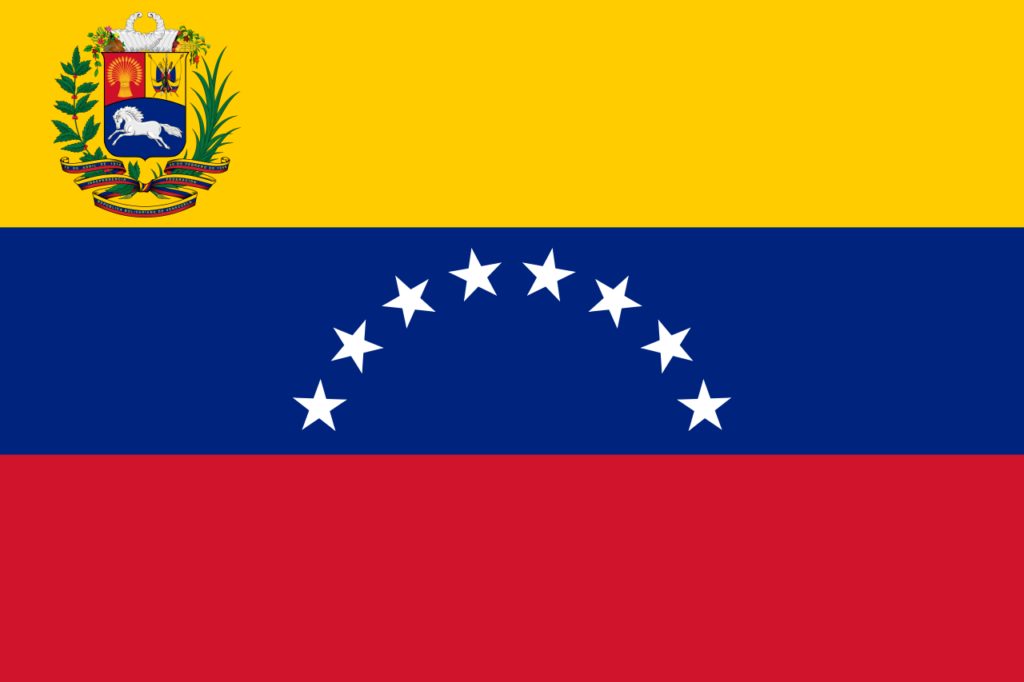
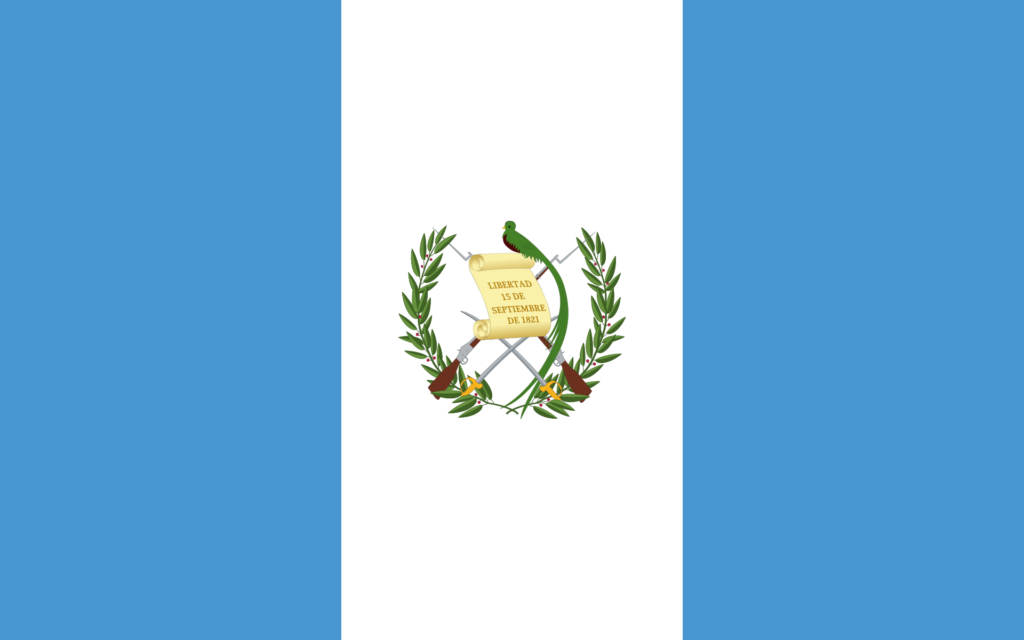
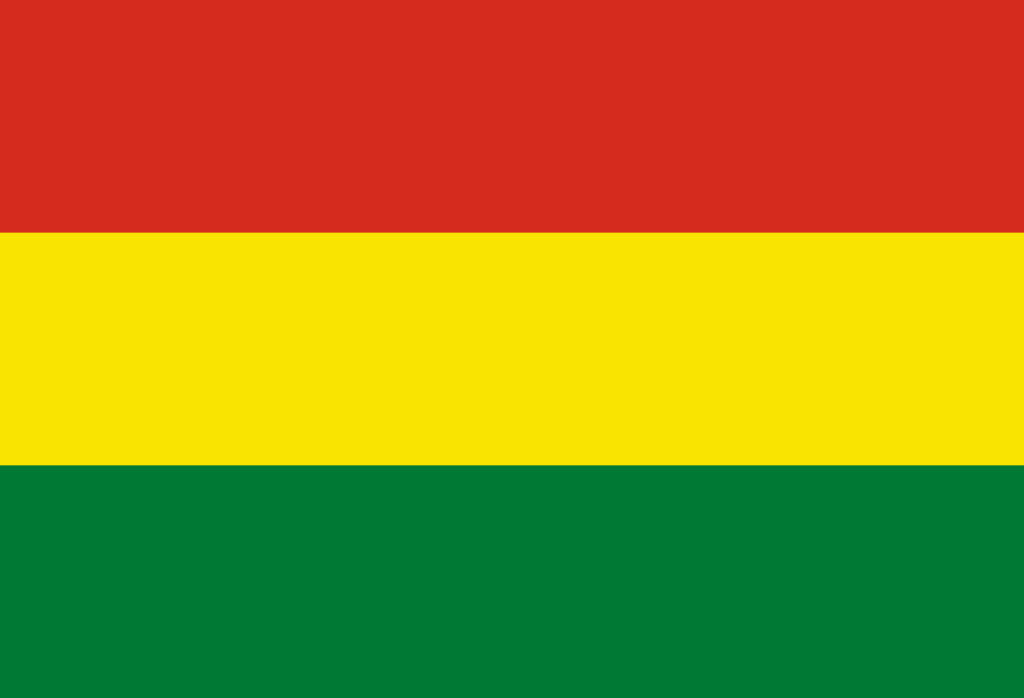
Most recent information or updates on legislation in Venezuela. Therefore, I cannot provide you with the latest legislation specifically regarding children with dyslexia in Venezuela.
However, I can provide you with some general information. In Venezuela, the legal framework for the rights of children with disabilities, including dyslexia, includes the following:
Constitution of the Bolivarian Republic of Venezuela – The Venezuelan Constitution guarantees the rights of all citizens, including children with disabilities. It emphasizes the principles of equality, non-discrimination, and access to education for all.
Law for Persons with Disabilities – Venezuela has a law specifically dedicated to the rights and protection of persons with disabilities. This law aims to ensure their full inclusion and participation in society, including education.
Education Laws and Regulations – The Ministry of Education in Venezuela establishes policies, guidelines, and regulations for the education system. These laws and regulations may include provisions for the education of children with disabilities, but specific details regarding dyslexia may vary.
To obtain the most accurate and up-to-date information on the legislation and rights of children with dyslexia in Venezuela, it is recommended to refer to the relevant laws, official government websites, the Ministry of Education, or consult with local educational authorities or organizations specializing in dyslexia and disabilities.

I can provide you with information about legislation in Mexico related to children with disabilities. However, please note that laws and regulations can change over time, so it’s always a good idea to consult the most recent and authoritative sources for the latest information. Here are some key laws and regulations in Mexico related to children with disabilities:
General Law for the Inclusion of Persons with Disabilities (Ley General para la Inclusión de las Personas con Discapacidad): This law, enacted in 2011, establishes the principles and guidelines for the inclusion of persons with disabilities, including children, in all aspects of society. It focuses on promoting equal opportunities, non-discrimination, and accessibility.
General Law on the Rights of Children and Adolescents (Ley General de los Derechos de Niñas, Niños y Adolescentes): This law, enacted in 2014, recognizes and protects the rights of children and adolescents, including those with disabilities. It aims to ensure their development, well-being, and participation in society, emphasizing the principles of inclusion and non-discrimination.
Law for the Integration of Persons with Disabilities of Mexico City (Ley para la Integración de las Personas con Discapacidad de la Ciudad de México): This law, specific to Mexico City, focuses on promoting the integration of persons with disabilities, including children, in various areas such as education, health, transportation, employment, and accessibility.
Education Law (Ley General de Educación): The Mexican education system is governed by the Education Law, which establishes the rights and obligations of students, including children with disabilities. It emphasizes inclusive education and requires schools to provide reasonable accommodations and support for students with disabilities.
National System for the Integral Development of the Family (Sistema Nacional para el Desarrollo Integral de la Familia, DIF): DIF is a government institution that focuses on promoting the rights and well-being of vulnerable populations, including children with disabilities. It provides various services, programs, and assistance for families and children in need.
These are some of the key legislation and institutions in Mexico related to children with disabilities. However, it’s important to consult the most up-to-date sources and consult with legal professionals or advocacy organizations specializing in disability rights for comprehensive and current information.

The legislation and legal framework for children with dyslexia and other learning disabilities include the following:
Law on the Education of Students with Special Educational Needs (Lei n.º 3/2008) – This law establishes the principles and guidelines for the education of students with special educational needs, including dyslexia. It emphasizes inclusive education, individualized support, and the right to equal opportunities in education.
Decree-Law on the Inclusion of Students with Disabilities and Special Educational Needs (Decreto-Lei n.º 54/2018) – This decree-law provides regulations and procedures for the inclusion of students with disabilities and special educational needs in regular schools. It promotes inclusive practices, reasonable accommodations, and the development of individualized educational plans for students with dyslexia and other learning disabilities.
Ordinance on the Assessment and Support for Students with Special Educational Needs (Portaria n.º 201-C/2015) – This ordinance establishes the assessment and support procedures for students with special educational needs, including dyslexia. It outlines the guidelines for the assessment process, the creation of individualized educational plans, and the provision of support services.
Law on the Promotion of Equal Opportunities and Non-Discrimination (Lei n.º 46/2006) – This law prohibits discrimination based on disability and promotes equal opportunities for individuals with disabilities, including children with dyslexia. It emphasizes the right to education and reasonable accommodations to ensure equal access and participation.
Education Acts and Regulations of the Autonomous Regions – Portugal has autonomous regions (Madeira and Azores), which have their own education acts and regulations. These acts complement the national legislation and provide specific guidelines and provisions for the education of students with disabilities, including dyslexia, within the respective autonomous regions.
About scholarship?
There are scholarship programs and support options available for students with dyslexia and other learning disabilities. Here are a few examples:
Bolsas de Estudo para Estudantes com Deficiência (Scholarships for Students with Disabilities): The Portuguese Ministry of Education provides scholarships specifically for students with disabilities, including those with dyslexia. These scholarships aim to support students in their educational pursuits by covering expenses such as tuition fees, transportation, and study materials.
Instituto Nacional para a Reabilitação (National Institute for Rehabilitation): The Institute offers financial support programs for individuals with disabilities, including students. They provide grants and scholarships to help cover educational expenses and facilitate access to education for students with dyslexia and other disabilities.
Gulbenkian Program for Qualification of People with Disabilities: The Calouste Gulbenkian Foundation offers a program that supports the qualification and training of individuals with disabilities, including students. The program includes scholarships for higher education and vocational training, assisting students with disabilities in their educational journeys.
Universities and Educational Institutions: Many universities and educational institutions in Portugal have their own scholarship programs and support services for students with disabilities, including those with dyslexia. These scholarships may be specific to each institution and can provide financial aid or additional support for students with disabilities.
It’s important to note that scholarship availability, eligibility criteria, application processes, and deadlines may vary for each program. It’s recommended to research specific scholarship programs, visit the websites of educational institutions, and consult with the relevant authorities or disability support services within Portugal to obtain accurate and up-to-date information.
Additionally, contacting dyslexia support organizations or advocacy groups in Portugal can provide further guidance and resources on scholarships and financial aid opportunities for individuals with dyslexia.
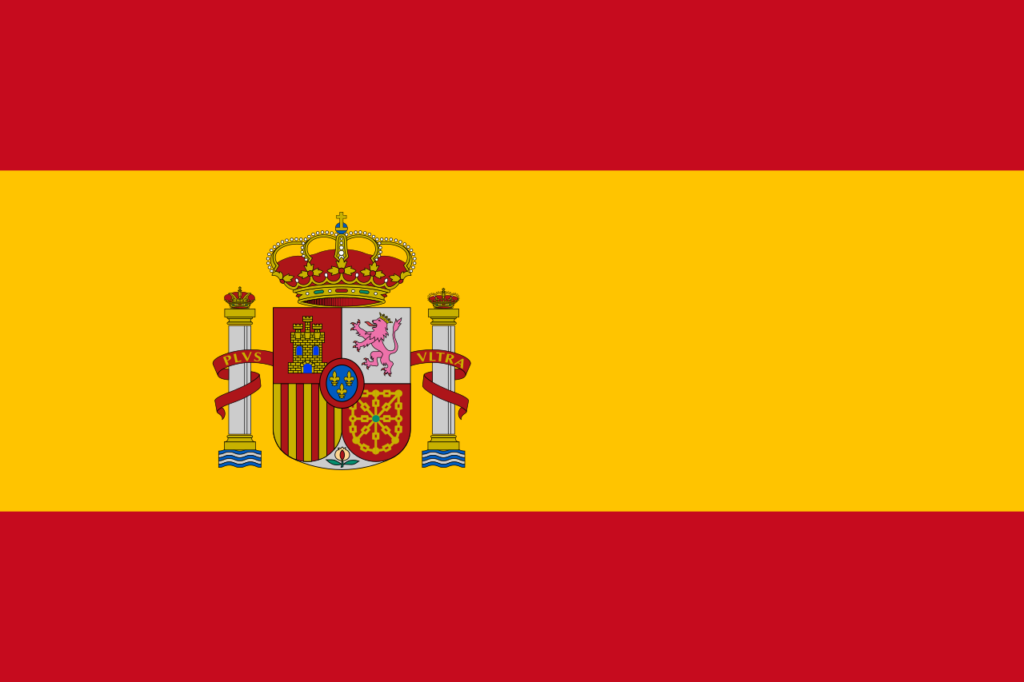
The legislation and legal framework for children with dyslexia and other learning disabilities include the following:
Law on the Rights of Persons with Disabilities and their Social Inclusion (Ley 27/2007, known as « Ley de Promoción de la Autonomía Personal y Atención a las Personas en Situación de Dependencia ») – This law establishes the rights and support measures for persons with disabilities, including children with dyslexia. It aims to promote their autonomy, social inclusion, and access to education, employment, and social services.
Organic Law on Education (Ley Orgánica 2/2006, known as « LOE ») – The LOE establishes the general framework for education in Spain, including the rights and educational provisions for students with disabilities. It emphasizes inclusive education, individualized attention, and support for students with dyslexia and other learning disabilities within the regular education system.
Royal Decree on Attention to Students with Specific Educational Support Needs (Real Decreto 126/2014) – This decree establishes the regulations for the attention and support of students with specific educational support needs, including those with dyslexia. It outlines the procedures for identification, assessment, and intervention to ensure appropriate support and accommodations in educational settings.
Education Acts of the Autonomous Communities – Each autonomous community in Spain has its own education act or regulations that complement the national legislation. These acts provide specific guidelines and provisions for the education of students with disabilities, including dyslexia, within the respective autonomous communities.
Guidance Documents and Circulars from the Ministry of Education – The Spanish Ministry of Education, in collaboration with the autonomous communities, issues guidance documents and circulars to provide specific guidelines and support for the education of students with disabilities. These documents outline the procedures, practices, and measures to be implemented in schools to support children with dyslexia and other learning disabilities.
In Spain, there are scholarship programs and support options available for students with dyslexia and other learning disabilities. Here are a few examples:
Fundación Universia: Fundación Universia offers scholarships and grants for students with disabilities, including dyslexia. Their scholarship programs aim to support students in higher education by providing financial assistance for tuition fees, study materials, and other related expenses.
Fundación ONCE: Fundación ONCE, in collaboration with various entities, provides scholarships for students with disabilities, including those with dyslexia. These scholarships cover different educational levels, from secondary education to university studies, and can support students in their academic pursuits.
Ministry of Education, Culture, and Sports Scholarships: The Spanish Ministry of Education, Culture, and Sports offers scholarships and grants for students with disabilities. These scholarships aim to support students at different educational levels, including primary, secondary, and higher education.
Autonomic Scholarships: Each autonomous community in Spain may have its own scholarship programs for students with disabilities. These programs can provide financial support and resources for students with dyslexia and other disabilities pursuing their education within the respective autonomous community.
Universities and Educational Institutions: Many universities and educational institutions in Spain have their own scholarship programs and support services for students with disabilities, including those with dyslexia. These scholarships may be specific to each institution and can provide financial aid or additional support for students with disabilities.
It’s important to note that scholarship availability, eligibility criteria, application processes, and deadlines may vary for each program. It’s recommended to research specific scholarship programs, visit the websites of educational institutions, and consult with the relevant authorities or disability support services within Spain to obtain accurate and up-to-date information.
Additionally, reaching out to dyslexia support organizations or advocacy groups in Spain can provide further guidance and resources on scholarships and financial aid opportunities for individuals with dyslexia.

The legislation and legal framework for children with dyslexia and other learning disabilities include the following:
Law on Equal Rights and Opportunities, Participation, and Citizenship of Persons with Disabilities (Loi n° 2005-102, known as « Loi handicap ») – This law, passed in 2005, aims to promote the rights and inclusion of persons with disabilities, including children with dyslexia. It focuses on ensuring equal opportunities, accessibility, and participation in all areas of life, including education.
Law on the Refoundation of Schools (Loi n° 2013-595, known as « Loi pour la Refondation de l’École ») – This law, passed in 2013, emphasizes inclusive education and promotes support for students with disabilities, including dyslexia, within the regular education system. It encourages individualized support, reasonable accommodations, and the inclusion of students with disabilities in mainstream schools.
Decree on the Rights and Duties of Students in Schools (Décret n° 2006-504) – This decree outlines the rights and duties of students in French schools, including those with disabilities. It emphasizes the right to reasonable accommodations and support for students with dyslexia and other disabilities to ensure their access to education and participation in school activities.
Circulars and Guidelines from the Ministry of Education – The French Ministry of Education regularly issues circulars and guidelines to provide guidance and support for the education of students with disabilities. These documents outline the procedures, practices, and measures to be implemented in schools to support children with dyslexia and other learning disabilities.
About scholarship?
There are scholarship programs and support options available for students with dyslexia and other learning disabilities.
Here are a few examples:
Allocation pour la Diversité dans la Fonction Publique (ADFP): The ADFP scholarship program aims to promote diversity in the public sector workforce. It provides financial assistance to students from underprivileged backgrounds, including those with disabilities, to pursue higher education and professional training.
Fonds Handicap et Société (FHS): FHS offers scholarships to students with disabilities, including dyslexia, to support their education and career development. The scholarships are available for various levels of education, from undergraduate to postgraduate studies.
Agence pour l’Enseignement Français à l’Étranger (AEFE) Scholarships: AEFE provides scholarships to support French citizens with disabilities who are studying abroad. These scholarships cover various educational expenses, including tuition fees and additional support services.
Universities and Educational Institutions: Many universities and educational institutions in France have their own scholarship programs and support services for students with disabilities, including those with dyslexia. These scholarships may be specific to each institution and can provide financial aid or additional support for students with disabilities.
Handicap et Alternance: Handicap et Alternance is a program that promotes the inclusion of individuals with disabilities in apprenticeship programs. It offers financial support and specialized assistance to students with disabilities pursuing apprenticeship training.